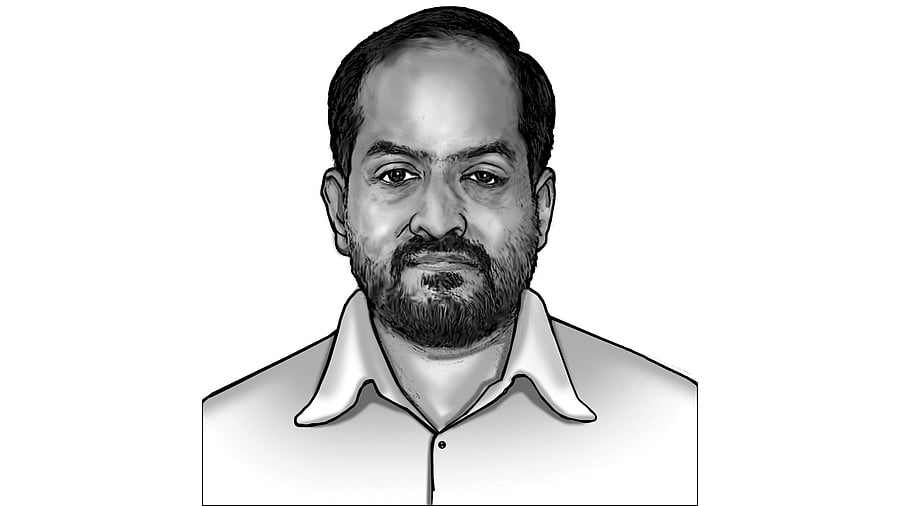
Venkatesh Nayak wakes up every morning thinking someone somewhere is hiding something.
Credit: DH Illustration
In 1766, Sweden enacted the world’s first law recognising a people’s right to access information from their government. Interestingly, its advocates employed a tailored image of governance mechanisms in Imperial China to support their campaign for a law that guaranteed the freedom of the press to report on governmental actions and curbed State censorship of public debate. Citing the Peking Gazette, whose origins can be traced to the Tang Dynasty’s regime, they argued that it was the vehicle for communicating information about governmental action to the people and conveying their feedback to the Emperor – characteristic features of transparent and accountable governance.
Contemporary academics have exposed this propagandist, though noble-intentioned, portrayal of pre-Communist China’s administrative practices. Information flows from the capital to the populace were strictly controlled by a conservative bureaucracy, and commenting on the Peking Gazette’s contents invited corporal punishment or even the death penalty. While eulogising the Chinese model in support of their democratising aspirations, Sweden’s transparency champions had turned a blind eye towards the highly centralised and control-obsessed administration’s efforts to gather more information about subjects of the Empire.
The recent order of our own Election Commission of India (ECI) requiring every voter in Bihar to prove one’s place and date of birth as a bona fide Indian citizen by furnishing documentary evidence, or risk disenfranchisement, smacks of similar imperiousness. Yet, after 20 years of implementing the RTI Act, which emphasises records maintenance, the ECI has shockingly claimed that it is unable to produce a copy of a similar order for the intensive revision of voter lists in Bihar issued in 2003. While the ballot has been digitised, old paper-based files containing a record of the ECI’s work seem to have escaped that destiny. Two years ago, its staff told me, a lot of information sent from the states and the districts about recent elections, simply cannot be traced in the multi-storeyed Nirvachan Sadan.
Before readers dismiss my words as hearsay, here is a sample of election-related records which the ECI claimed, in RTI replies, it does not hold or never received from the states relating to the 2024 Lok Sabha polls. When asked for the complete list of Returning Officers (ROs) of the constituencies (as they are not displayed on the website), the ECI replied nonchalantly that no such list is available with it and refused to transfer the request to the states and the UTs!
In response to my RTI application seeking a list of expenditure-sensitive Lok Sabha constituencies that must be monitored more closely for campaign spending, the ECI replied that it does not have a readily available list and compiling it would disproportionately divert its resources. It also rejected a proactive disclosure of the expenditure observers’ reports.
When quizzed about the suspicious transaction reports (STRs) received from banks that are required to monitor large-sized monetary transactions during the campaign, the ECI claimed that no such information is available with it. Refusing to disclose even the number of STRs it received, ECI instructed me to approach the district election officers directly.
When asked for a copy of the reports ROs send after scrutinising all documents created during polling, the ECI replied that the records sought do not even fall within the definition of “information” under the RTI Act! In the wake of the controversy about voter turnout figures in Maharashtra last year, the ECI told me, in writing, that it does not have information about the number of voters who were issued pre-numbered tokens to cast their vote after 5 pm even though its election manual requires ROs to submit such reports through their Chief Electoral Officers.
When asked to publish reports sent by the states after mapping Lok Sabha constituencies, or pockets within them, where voters are vulnerable to intimidation and illegal inducement, the ECI claimed that it does not have such information in its records. This lie stands exposed. An RTI activist successfully obtained these vulnerability mapping reports from Maharashtra’s Chief Electoral Officer. They were dispatched to the ECI on March 27, 2024!
Much like the no-data-available governments holding fort across the country, the ECI is turning crucial election-related information into sarkari secrets, especially that which is required to establish its accountability. The citizen-State relationship envisioned by the Constitution to guarantee the dignity of every individual is in danger of becoming a master-servant fetter. Bihar seems to be the laboratory for an iniquitous experiment that might soon be repeated across the country.